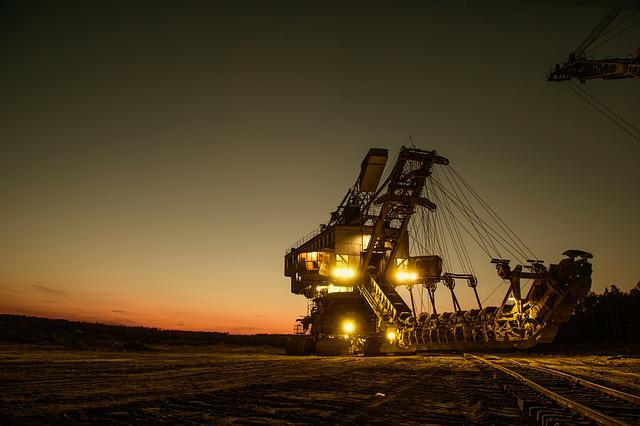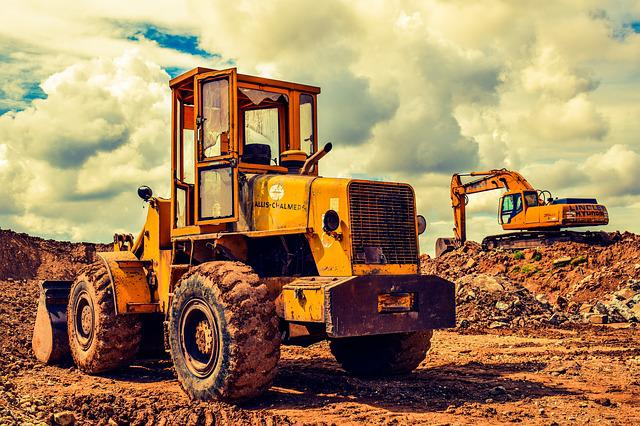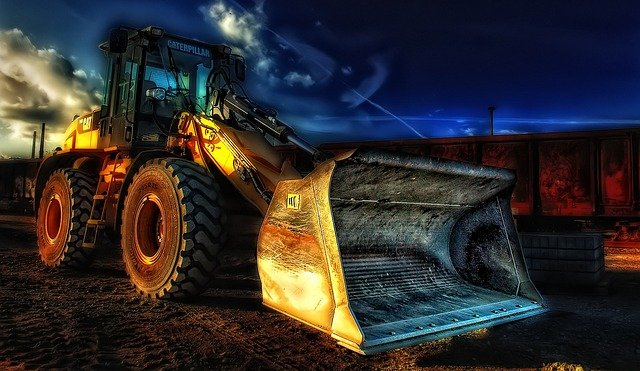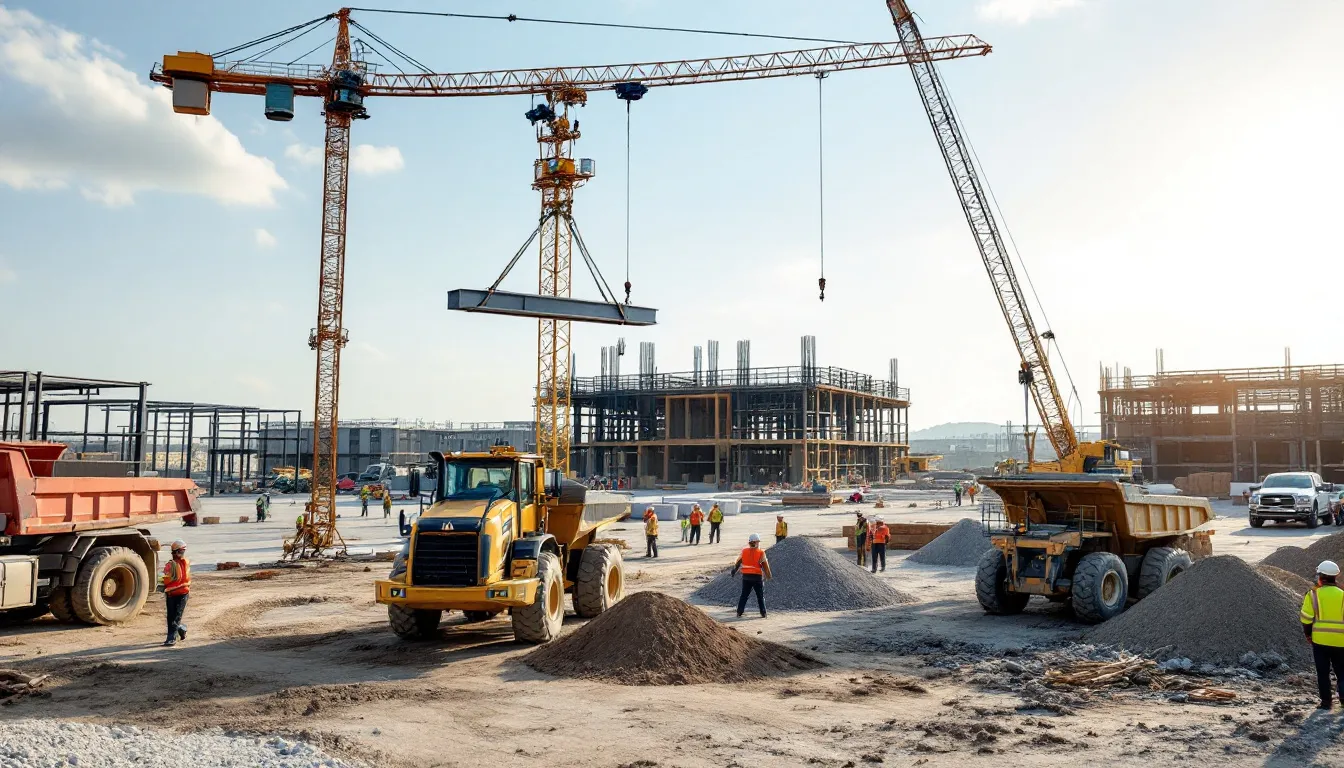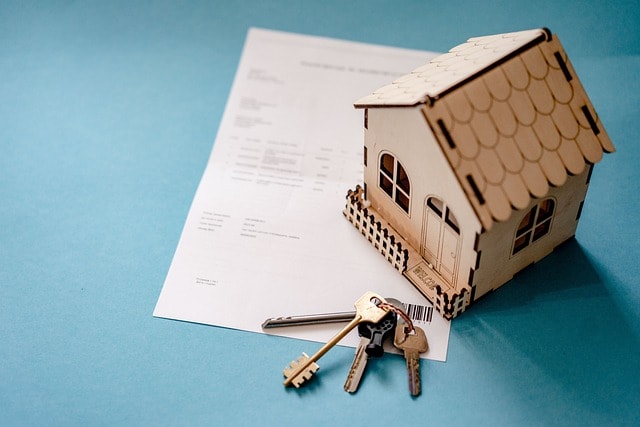What is Heavy Equipment Financing?
When it comes to acquiring heavy machinery for construction, landscaping, or building maintenance, equipment financing is a crucial tool for businesses looking to manage costs and maintain operational efficiency. Construction equipment financing provides tailored financing and leasing options specifically designed for construction businesses, enabling them to acquire the necessary machinery through specialized financial solutions.
Heavy equipment financing is when you use business credit to acquire heavy machinery for your business, especially in industries such as construction, agriculture, and manufacturing. There are several types of financing options available for heavy equipment.
Heavy equipment financing enables businesses to manage their cash flow more effectively by spreading the cost of expensive machinery over a period of time. These solutions often provide flexible payment options and terms to accommodate different business needs.
Let’s review what’s available to see what works best for your small business.
Equipment Loans
An equipment loan is a type of small business loan that uses the equipment or asset as collateral. Equipment loans are commonly used for purchasing a wide range of business-related equipment, including heavy machinery for construction, landscaping, or property management.
Since the equipment serves as collateral, lenders face less risk, leading to higher borrowing amounts, lower interest rates, and more favorable repayment terms. Equipment loans also enable businesses to acquire ownership of the machinery, providing asset control and potential tax advantages through Section 179 Vehicle Deductions.
Qualified borrowers are typically eligible for the following:
-
Up to $5 million per piece of equipment.
-
Interest rates starting at 3.5%
-
Repayment terms of 1-6 years.
-
Funding in 3-10 business days.
Once the equipment is purchased through the loan, the business benefits from ownership and related advantages. Different repayment structures can also help businesses manage their debt effectively.
Heavy Equipment Leasing
Heavy equipment leasing provides flexible leasing solutions tailored for businesses that require heavy equipment. Like leasing a car, you use the equipment and make scheduled monthly payments during the lease term. At the end of the lease, it returns to the owner. Some leasing companies will offer a purchase option (Rental Purchase Option, or RPO), allowing you to buy the equipment at fair market value at the end of the lease, which can benefit businesses deciding whether to lease or buy. Others will give you the option to extend the lease.
Leasing heavy equipment usually means a lower monthly payment and less commitment. Leasing also has lower requirements, making it easier to get approved if you have a low credit score. You don’t have to pay for maintenance either.
However, some leases include usage limits, and you don’t own the equipment, so you can’t build equity. Leasing can ultimately prove to be more expensive than financing.
In some ways, leasing is similar to renting, but on a longer-term basis. You can also rent equipment for short-term projects.
Direct Heavy Equipment Financing
While equipment loans cover general-purpose heavy equipment, allowing you to buy more than one type of machine, direct heavy equipment financing is more like a car loan. The lender, usually a heavy equipment manufacturer, issues a loan for the specific piece of heavy equipment.
Direct heavy equipment financing often involves working closely with equipment dealers to facilitate the purchase process. The lender owns a lien on your title, which is released in your name when you finish paying off the loan. Some financing providers also manage equipment leasing and support through their in-house staff, offering personalized service.
How do Heavy Equipment Loans work?
The process begins with obtaining the invoice or equipment quote for the heavy equipment you wish to purchase. Then find a lender or lending marketplace you want to work with. Apply for the loan following their application process. If approved, the lender sends the cash to the seller for the invoice amount.
Lenders often work closely with customers to tailor financing solutions that align with their cash flow, tax, and business objectives.
Both your business and the lender go on the title for the equipment. You repay the loan, plus interest and fees, in fixed monthly payments while using the equipment. Once you make the final payment on the loan term, you get the title in the business’s name and own it outright.
As you make payments, you build equity in the equipment and can use that equity for future financing. Once you pay the loan off, you can continue to use the equipment on the job site and the equity you own for financing. Or you can resell the equipment. Payments made on equipment leases and loans can often be deducted as business expenses, reducing overall taxable income.
Managing Cash Flow with Equipment Financing
Effective cash flow management is the backbone of any successful business, especially when it comes to acquiring and maintaining heavy equipment. Equipment financing offers a range of solutions, including equipment loans and leasing options, that enable businesses to obtain the right equipment without depleting their working capital. By spreading the cost of new machinery over affordable monthly payments, companies can maintain steady cash flow and reserve funds for other operational needs.
Financing options make it possible to invest in the latest technology and upgrade to new machinery as your business grows, helping you stay competitive in your industry. Whether you choose to finance or lease, these solutions provide the flexibility to balance your cash flow requirements with your long-term growth objectives. Ultimately, equipment financing empowers businesses to acquire essential equipment, manage payments efficiently, and invest in future opportunities without compromising their financial stability.
Interest Rates and Financing Terms
When considering equipment financing, understanding interest rates and loan terms is crucial to making the best decision for your business. The interest rate you secure directly impacts your monthly payments and the overall cost of financing. A lower interest rate can make monthly payments more affordable, but it may come with a longer loan term, which could result in a higher total amount paid over time.
On the other hand, opting for a shorter loan term can help you pay less in interest overall, but it may result in higher monthly payments that could strain your cash flow. It’s essential to carefully evaluate your financing options by comparing interest rates, loan terms, and payment schedules to determine the best choice for your needs. Striking the right balance between affordable monthly payments and the total cost of financing ensures that your business can manage its cash flow while acquiring the necessary equipment for growth.
Heavy Equipment Maintenance and Upkeep
Regular maintenance and upkeep are essential for maximizing the lifespan and value of your heavy equipment. When exploring equipment financing options, it’s necessary to factor in maintenance and repair costs, as these can significantly impact your bottom line. Some financing solutions, particularly certain leasing options, may include maintenance packages that help you manage these expenses with predictable, manageable costs.
Investing in routine maintenance not only minimizes downtime and reduces unexpected repair costs but also ensures your equipment operates at peak performance. Over time, well-maintained equipment retains more value, helping your business build equity in its assets. By selecting a financing option that aligns with your maintenance strategy, you can safeguard your investment, manage costs effectively, and maintain smooth operations.
Equipment Depreciation and Financing
Equipment depreciation is a key consideration when financing heavy equipment, as it affects both your business’s financial position and tax liability. As equipment ages, its value decreases, but this depreciation can be leveraged for tax benefits. Equipment financing solutions—such as loans and leases—offer predictable payment schedules, making it easier to manage the impact of depreciation on your cash flow.
By financing equipment, businesses can often claim depreciation as a tax deduction, reducing taxable income and lowering overall tax liability. It’s essential to consult with a tax advisor to determine the best financing option for your specific situation, ensuring you maximize tax benefits while minimizing financial risks. Understanding how depreciation interacts with your chosen financing solution helps you make informed decisions that support your business’s long-term financial health.
Tax Implications of Equipment Financing
The tax implications of equipment financing can be complex, but they offer significant opportunities for businesses to optimize their cash flow and reduce tax liability. Both equipment loans and leases can provide valuable tax benefits, including deductions for depreciation and interest payments. When evaluating financing options, it’s essential to consider how each choice will impact your tax situation, monthly payments, and overall financial strategy.
By selecting the right financing option, businesses can minimize their tax liability, maximize available tax benefits, and maintain healthy cash flow. Consulting with a tax advisor is highly recommended to ensure you understand all the factors involved—including interest rates, loan terms, and potential deductions—so you can determine the best financing option for your equipment needs. Careful planning and expert guidance will help you take full advantage of the tax benefits associated with equipment financing, supporting your business’s growth and financial stability.
Who provides Heavy Equipment Loans?
Many financing agreements come with fixed interest rates, meaning monthly payments remain consistent throughout the loan or lease term. Let’s review some of your equipment financing options.
Many lenders also have in-depth knowledge of the industries they serve, allowing them to offer specialized financing solutions tailored to your business needs.
Traditional Banks
Many commercial banks offer financing for heavy equipment. You might want to start there if you have a good working relationship with a local commercial bank. Traditional banks typically offer the best interest rates, but you need a good credit history for lender approval.
There are two main drawbacks to pursuing heavy equipment financing, or any small business financing, with a commercial bank. The first is that they have the highest credit approval requirements. You’ll usually need an outstanding personal credit score, at least two years in operation, and strong business financials to get approved. Secondly, they take the longest to fund your loan. Sometimes, it could even take weeks from the time you apply until you get your equipment.
Even so, they’re typically the lowest-cost financing option if you meet the requirements and have time to be patient.
Heavy Equipment Financing Companies
Some equipment manufacturers also offer financing programs. Many equipment financing companies provide construction equipment financing programs tailored to the specific needs of contractors and builders. Using this type of lender is like financing a car directly with the car manufacturer. John Deere and Caterpillar provide financing programs for their heavy equipment product lines.
The advantage of working with a heavy equipment financing company is getting everything done in a one-stop shop. The drawback is that you’re limited to equipment from just that one company. If you wanted a mix of brands, you’d have to get a different type of financing. Additionally, they have high credit score requirements.
Alternative Lenders & Lending Marketplaces
Lenders like Balboa Capital and lending marketplaces (like United Capital Source) are great options for many small businesses needing construction equipment. Because online lending marketplaces can shop the best rates around, regardless of geographic location, you can get various offers and find the best one for your needs. Most online lenders also have lower credit approval requirements and can fund the loan quickly.
What are the qualifications for a Heavy Equipment Loan?
The specific qualifications vary from lender to lender. When applying for an equipment loan through United Capital Source, you will need the following:
-
A minimum credit score of 600.
-
At least 1 year in business.
-
Annual revenue of $250,000 or more.
How to Apply for a Heavy Equipment Loan:
Follow these steps to apply with United Capital Source.
Step 1: Ensure that buying equipment is the right choice for your business.
You want to make sure the heavy equipment is worth the cost of the loan. The lender will review the equipment to determine if its lifetime value justifies the invoice cost. You want to make sure the new equipment will get the job done.
Step 2: Gather your documentation.
You need to provide the following:
-
Driver’s license.
-
Voided check from your business checking account.
-
Bank statements from the past three months to demonstrate cash flow.
-
Financial statements.
Step 3: Complete the application.
The application process is relatively fast, and you can apply directly through our one-page application in a matter of minutes or reach out to one of our loan experts to guide you through the process.
Step 4: Speak to a representative.
After we receive your application, a senior account executive will reach out to you. The account executive will discuss your needs and focus on providing you with equipment loan offers. We offer complete transparency, with no hidden fees or surprises.
You’ll get a complete breakdown of loan amounts, terms, and fees. Once you have all the information, you can decide which options make the most sense for your business.
Step 5: Get approved.
Your loan goes through when your application meets underwriting requirements and gets credit approval. Next, the money is paid directly to the seller to settle the invoice. We can help you set up automatic payments, or you can arrange to pay by check or electronic payment.
Heavy Equipment Financing Frequently Asked Questions
Here are the answers to the most frequently asked questions about equipment financing.
What heavy equipment can I finance?
Equipment loans cover a wide range of heavy machinery you can acquire. As long as there is a genuine business need, you can get financing for most new or used equipment. Examples include:
-
Bulldozers
-
Backhoes
-
Tractors
-
Cranes
-
Excavators
-
Skid steer loaders
-
Feller bunchers
-
Pavers
-
Drilling machines
-
Trenchers
Can I Finance Heavy Equipment if I have bad credit?
Since equipment loans use the asset as collateral, lenders are more willing to work with borrowers who have lower credit scores. While repayment terms are similar, you might have higher interest rates and fees. You can take additional steps to help secure business financing with poor credit.
You could try the following:
-
Making a down payment
-
Getting a co-signer
-
Adding additional collateral
Is it better to Finance or Lease Heavy Equipment?
Deciding between heavy equipment leasing and financing comes down to the specific equipment and your business needs. Purchasing equipment through financing can be advantageous for businesses seeking long-term asset control, as it allows them to acquire ownership while spreading out the cost over time.
A lease makes more sense if you only plan to use the equipment for a few years or expect it to become obsolete. Leasing allows businesses to upgrade to newer models at the end of the lease term, ensuring access to the latest technology without being burdened by outdated equipment. For equipment with a long useful life, such as construction machinery, a loan might be a better option because the business eventually owns the asset outright.
Finance Pros & Cons
Pros:
-
You own the equipment.
-
Helps build business credit.
-
Less expensive over time.
-
More funding options.
Cons:
-
Harder to qualify.
-
You’re responsible for all maintenance not under warranty.
-
More challenging to upgrade to new equipment.
Lease Pros & Cons
Pros:
-
Lower payments.
-
Easier to qualify.
-
Maintenance is covered in the lease.
-
Easier to upgrade to new equipment.
Cons:
-
You don’t own the equipment.
-
It can become more expensive over time.
Heavy Equipment Finance: Final Thoughts
Equipment financing could be the solution when construction companies need new or used equipment but don’t have the cash reserves to purchase it. You should shop around to find the best rates and terms for your business.
You want to make sure your cash flow can handle the monthly payment. Just as important, you want to ensure that the equipment will help you drive revenue.
If you want to pursue equipment financing, you can apply now or reach out to one of our loan experts. We understand your unique business needs and can help you find financing that works for your business.



